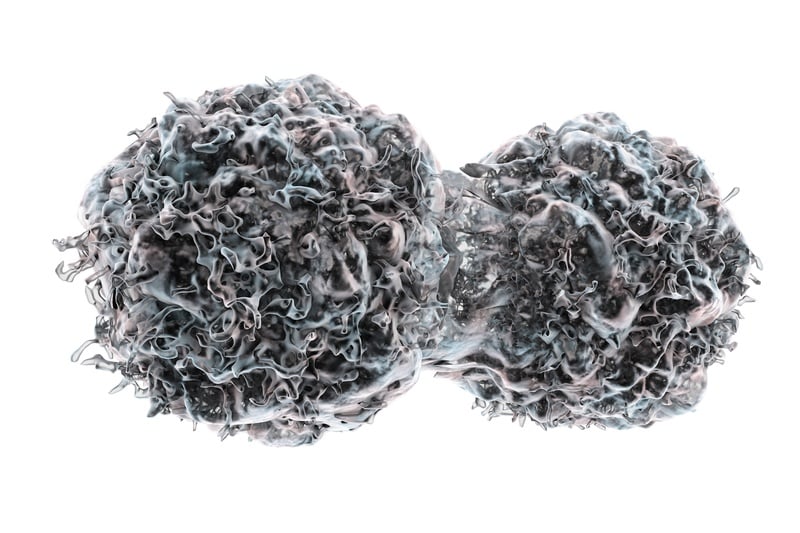 In the realm of medical diagnostics, technological advancements are often the catalysts that reshape the landscape. A prime example of this phenomenon is the rapid evolution of minimal residual disease (MRD) testing, a technique used to detect and quantify the small number of cancer cells that remain in a patient’s body after treatment.
In the realm of medical diagnostics, technological advancements are often the catalysts that reshape the landscape. A prime example of this phenomenon is the rapid evolution of minimal residual disease (MRD) testing, a technique used to detect and quantify the small number of cancer cells that remain in a patient’s body after treatment.
According to BIS Research, through a convergence of HealthTech breakthroughs, the global MRD testing market is projected to reach $6.67 billion by 2033 from $1.47 billion in 2022, growing at a CAGR of 14.81% during the forecast period 2023-2033.
This article delves into the latest HealthTech developments propelling this growth and ushering in a new era of precision medicine.
1. Quest Diagnostics Acquired an MRD Testing Startup to Expand Oncology Portfolio
With the growing incidence of cancer, there is an increasing burden on healthcare service providers. HealthTech diagnostics companies are working to enhance the sensitivity, accuracy, and efficiency of MRD testing methods.
On April 27, 2023, Quest Diagnostics, a leading diagnostic information service provider, acquired Haystack Oncology, a biotech research startup specializing in MRD testing. This acquisition would improve and expand Quest Diagnostics’ oncology portfolio by incorporating Haystack’s sensitive liquid biopsy technology. This strategic move is projected to elevate Quest’s position in the burgeoning MRD market.
The technology identifies circulating tumor DNA (ctDNA) in post-treatment patients, aids in early cancer detection, and informs treatment decisions.
Through this acquisition, Quest Diagnostics also aims to develop new blood-based clinical lab services for solid tumor cancers, initially focusing on colorectal, breast, and lung cancers. It is anticipated to launch in 2024.
2. NeoGenomics Commercialized New MRD Test Addressing Previous Challenges
In March 2023, NeoGenomics, based in Florida, commercialized its residual disease and reoccurrence (RaDaR) liquid biopsy test, designed for accurate, personalized MRD and recurrence testing with heightened sensitivity and specificity.
RaDaR sequencing assays monitor up to 48 unique tumor-specific mutations tailored to each patient, detecting circulating tumor DNA (ctDNA) with precision. With a demonstrated limit of detection (LoD95) of 0.001% variant allele fraction (VAF), RaDaR enables early detection even at extremely low ctDNA levels. Its analytical specificity of 100% ensures fewer false positives, bolstering confidence in results.
Backed by supportive publications as provided by NeoGenomics, the test primarily aids in breast cancer cases.
According to Chris Smith, CEO of NeoGenomics, “The RaDaR assay addresses one of the most difficult challenges in oncology diagnostics by allowing oncologists to spot small amounts of cancer cells with greater sensitivity and much earlier than with standard tests.”
The identification of minimal residual disease and relapse stands as an emerging realm in cancer diagnostics, poised to greatly influence treatment choices and patient results.
Outcomes from the RaDaR test furnish clinicians with insights into residual disease post-curative intent therapy or surgery. This data informs treatment strategies and aids in patient monitoring for early recognition of disease recurrence, surpassing conventional monitoring techniques.
3. AstraZeneca Collaborated with Cancer Intelligence Startup to Assess Whole Genome MRD Testing
In January 2023, AstraZeneca, a leading biopharmaceutical company, collaborated with C2i Genomics, a Biotech startup based in New York. The partnership involves the utilization of C2i’s whole-genome cancer treatment intelligence platform.
Through the platform, AstraZeneca would assess whole-genome MRD testing across various solid cancers. This MRD technology combines whole-genome sequencing and artificial intelligence to enhance oncology treatments and facilitate clinical trial recruitment and monitoring.
Furthermore, during the collaboration, C2i Genomics successfully detected circulating tumor DNA (ctDNA) down to an allelic frequency of 0.002% using its assay, leading AstraZeneca to further validate the C2i Genomics platform with patient-derived samples.
4. Big Biotech Collaboration to Employ New Assay for MRD Assessment
In April 2023, Adaptive Biotechnologies Corporation, a commercial-stage biotechnology firm, initiated a translational partnership with Takeda, based in Japan, to employ its clonoSEQ assay for MRD evaluation.
The collaboration aims to advance Takeda’s treatments for lymphoid malignancies through the assessment of MRD, aiding clinical development and commercialization efforts. MRD analysis gauges treatment response depth and detects early relapse signs before symptoms arise.
The clonoSEQ assay has been sanctioned by the U.S. FDA for MRD assessment in lymphoid malignancies. It employs next-generation sequencing and is highly accurate and sensitive.
Furthermore, this collaboration would enable MRD assessment to be used as an endpoint in Takeda’s lymphoid malignancy trials.
5. Research Shows Accuracy of MRI Radiomics ML Algorithm in Detecting MRD Status
A study published in Clinical Radiology in August 2023 reveals that an MRI radiomics machine-learning algorithm can accurately detect the MRD status in patients with multiple myeloma (MM), a biomarker linked to longer survival.
The researchers, led by X. Xiong from the First Affiliated Hospital of Soochow University in China, trained the algorithm to analyze T1-weighted and fat-saturated T2-weighted imaging sequences on lumbar spine MRI.
In the trial, the linear support vector machine (SVM) classifier performed the best, achieving an area under the curve (AUC) for MRD status of up to 0.8. According to the research authors, “The linear SVM-based machine-learning method can offer a noninvasive tool for discriminating MRD status in MM.”
Conclusion
As MRD testing gains prominence in cancer care, industry participants must prioritize innovation, standardization, and accessibility to leverage the promising prospects in the market’s future.
Interested to know more about the growing technologies in your industry vertical? Get the latest market studies and insights from BIS Research.
About the Publisher: BIS Research is a global market intelligence, research and advisory company that focuses on emerging technology trends that are likely to disrupt the market. Its team includes industry veterans, experts, and analysts with diverse backgrounds in consulting, investment banking, government, and academia.








